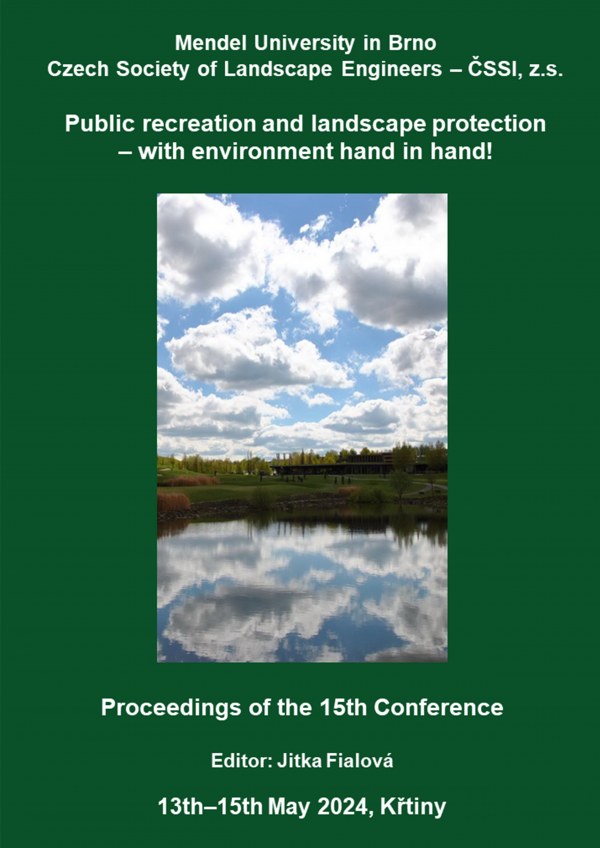
DOI: 10.11118/978-80-7509-963-1-0142
GREEN BUDGET AS A FORM OF SOCIAL ACTIVATION TO IMPROVE THE URBAN ENVIRONMENT – CASE STUDY OF KATOWICE, POLAND
- Kinga Kimic1,3, Paulina Polko2,3
- 1 Department of Landscape Architecture, Institute of Environmental Engineering, Warsaw University of Life Sciences – SGGW, Nowoursynowska Street 159, 02-776 Warsaw, Poland
- 2 Faculty of Applied Sciences, WSB University, Cieplaka Street 1C, 41-300 Dabrowa Gornicza, Poland
- 3 COST Action – CA18204 “Dynamics of placemaking and digitization in Europe´s cities (DOPMADE)“
Participatory Budgets as a placemaking tool involve residents in co-deciding on public expenditure. The growing number of applications for pro-environmental projects influences the creation of Green Budgets in many Polish cities. An example is Katowice where such an initiative has been operating since 2020 to support public tasks in the field of ecology and environmental protection. The study is aimed at indicating the development trends of the Katowice Green Budget based on its 4 editions (2020, 2021, 2022, 2023). During this period, residents submitted a total of 715 green projects and 347 of them were selected for implementation. The results show a growing trend in the scope of submitted green projects in the first 3 editions and stabilization in the 4th edition. The number of accepted projects is constantly growing. The largest number of projects is related to the development of greenery (new plantings, green streets, revitalization of green areas), as well as green education important for increasing public awareness of the role of pro-environmental activities in the city. This confirms that the Green Budget fills the gap in activities supporting the development of urban greenery, and is appreciated by both the city authorities and residents.
Keywords: urban green spaces, placemaking, environmental education, sustainable society, sustainable city
pages: 142-146, Published: 2024, online: 2024
References
- Bernaciak A., Rzeńca A., Sobol A. (2017). Participatory Budgeting as a Tool of Environmental Improvements in Polish Cities. Economic and Environmental Studies, 17/4 (44), 893-906. https://doi.org/10.25167/ees.2017.44.16
 Go to original source...
Go to original source... - Cunha E.S.M., Allegretti G., Matias M. (2011). Participatory budgeting and the use of information and communication technologies: A virtuous cycle? RCCS Annual Review, 3, 141-159. https://doi.org/10.4000/rccsar.316
 Go to original source...
Go to original source... - Development Strategy of the City of Katowice 2030 (Strategia Rozwoju Miasta Katowice 2030) (2015). Uchwała nr XIX/365/15 Rady Miasta Katowice z dnia 17.12.2015 r. w sprawie przyjęcia Strategii Rozwoju Miasta Katowice 2030. https://bip.katowice.eu/Lists/Dokumenty/Attachments/135424/Sesja%20LXV-1360-23.pdf (Access: 19.01.2024).
- Jamontt M.J., Kociszewski K., Platje J. (2020). Wroclaw participatory budget as a tool to strengthen natural capital and the urban climate resilience in the years 2016-2018. Studia Miejskie, 37, 65-77. https://doi.org/10.25167/sm.1523
 Go to original source...
Go to original source... - Kimic K., Maksymiuk G., Suchocka M. (2019). The application of new technologies in promoting a healthy lifestyle: Selected examples. Bulletin of Geography. Socio-Economic Series, 43, 121-130. https://doi.org/10.2478/bog-2019-0008
 Go to original source...
Go to original source... - Kimic K., Polko P. (2022). The Use of Urban Parks by Older Adults in the Context of Perceived Security. International Journal of Environmental Research and Public Health, 19(7), 4184. https://doi.org/10.3390/ijerph19074184
 Go to original source...
Go to original source... - Kimic K., Smaniotto Costa C., Bocci M., Aragão N. (2024). How People Change Public Parks by Using: Notes on Before and After the Covid-19 Outbreak. In: Smaniotto Costa C., Fathi M., Garcia-Esparza J.A. (Eds.), Placemaking in Practice. Vol. 1. Experiences and Approaches from a Pan-European Perspective, pp. 272-289. https://doi.org/10.1163/9789004542389_016
 Go to original source...
Go to original source... - Maksymiuk G., Kimic K. (2016). 'Green projects' in participatory budgets inclusive initiatives for creating city's top quality public spaces. Warsaw case study. In: Marina O., Armando A. (Eds.), Inclusive/exclusive cities, City of Skopje, pp. 120-135.
- Olejniczak J., Bednarska-Olejniczak D. (2021). Participatory Budgets of Polish Major Cities During Covid-19. European Research Studies Journal, XXIV, Special Issue 3, 983-996. 10.35808/ersj/2553
 Go to original source...
Go to original source... - Polko P., Kimic K. (2022). Gender as a factor differentiating the perceptions of safety in urban parks. Ain Shams Engineering Journal, 13, 101608. https://doi.org/10.1016/j.asej.2021.09.032
 Go to original source...
Go to original source... - Polko P., Kimic K. (2024). National Map of Security Threats as a Citizen Involvement Tool for Planning Safer Urban Public Spaces. Urban Planning, 9, 7156. https://doi.org/10.17645/up.7156
 Go to original source...
Go to original source... - Pudełko A. (2015). Partycypacja obywatelska w procesie rewitalizacji na przykładzie planowania zintegrowanego programu rewitalizacji osiedla Nikiszowiec w Katowicach. Prace Geograficzne, 142, 89-103. 10.4467/20833113PG.15.020.4460
- Sinervo L.-M., Bartocci L., Lehtonen P., Ebdon C. (2024). Toward sustainable governance with participatory budgeting. Journal of Public Budgeting, Accounting & Financial Management, 36(1), 1-19. https://doi.org/10.1108/JPBAFM-11-2023-0205
 Go to original source...
Go to original source... - Smaniotto Costa C., García-Esparza J.A., Kimic K. (2024). Participatory Budgeting and Placemaking: Concepts, Methods, and Practices. Urban Planning, 9, 7162. https://doi.org/10.17645/up.7162
 Go to original source...
Go to original source... - Sobol A. (2019). Towards sustainability? Analysis of Participatory Budgeting in the City of Katowice. Studia Periegetica, 1(25), 49-63. https://doi.org/10.26349/st.per.0025.04
 Go to original source...
Go to original source... - Szczepańska A., Zagroba M., Pietrzyk K. (2022). Participatory Budgeting as a Method for Improving Public Spaces in Major Polish Cities. Social Indicators Research, 162, 231-252. https://doi.org/10.1007/s11205-021-02831-3
 Go to original source...
Go to original source... - Taylor Z. (2019). Pathways to legitimacy. Planning Theory, 18(2), 214-236. https://doi.org/10.1177/1473095218806929
 Go to original source...
Go to original source... - van der Jagt A.P.N., Buijs A., Dobbs C. et al. (2023). An action framework for the participatory assessment of nature-based solutions in cities. Ambio, 52, 54-67. https://doi.org/10.1007/s13280-022-01772-6
 Go to original source...
Go to original source... - Zielony Budżet Miasta Katowice (2024). Wydział Komunikacji Społecznej, Urząd Miasta Katowice. https://bo.katowice.eu/zielony-budzet (Access: 9.01.2024).


